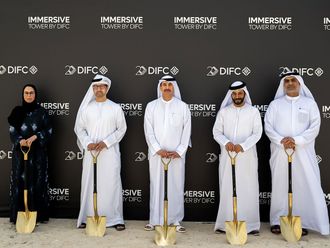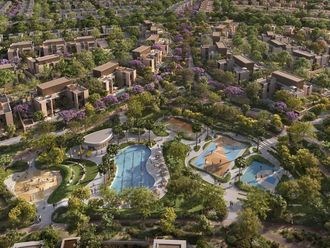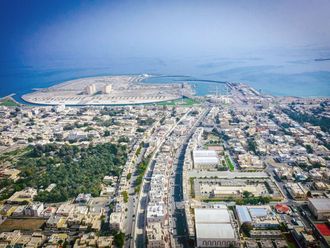
Dubai: Whenever there is a whiff of change in regulation, the market jumps to attention, and recently there have been a few that have generated interest.
One was the Dubai Land Department deciding to suspend the registration of titles in the name of foreign offshore companies. This includes developers' real estate units and land. One may be forgiven to wonder whether that is to have a firmer legal hold.
Also, some companies often float marketing arms whose names may differ from projects registered. This allows developers with offshore bases to run away more easily in case there is trouble. However, lawyers don't seem to think that is the reason.
"Developers often use different companies for separate projects and quite often, offshore entities are used because of ease of establishment and low fees," explains Michael Lunjevich, partner at Hadef & Partners.
Al Tamimi & Company's partner, Lisa Dale, says it was a mere administrative decision to delay some of the offshore registrations to allow the Land Department to develop documentary reporting regulations.
"There is nothing sinister about it. In the meantime the Land Department has continued registering offshore companies, provided they were prepared to show the full documentations required."
Attention turns to other initiatives, most of them designed to protect investors. The Executive Council's Decree No. (6) of 2010, signed but awaiting formal publication in the Official Gazette, seeks to clarify the regulations outlined in Law No. (13) of 2008, adds other niceties.
"Off-plan registrations are becoming increasingly protective of investors' interests," says Dale.
According to the decree, the developer cannot sell off-plan properties before taking control of the land and obtaining necessary approvals to build and sell via a registered broker. It, however, does not specify if the land has to be fully paid off, often putting a project at risk.
"It appears there is still wiggle room depending on the size of the developer and the risks involved. We would expect the departments to take into consideration if a project has strong fundamentals with committed financing and investor backing," Lunjevich said.
Late registration will now attract fines.
Another surprise decision is allowing developers to apply late to register their units by paying a Dh10,000 fine. This resonates with a recent decision by the Court of Cassation to rule a contract that was registered late as valid.
Does this mean investors fighting their case based on null-and-void contracts due to non-registration are left high and dry?
"We would expect the courts to apply some sort of reasonable timeline. It appears the authorities do not want contracts declared void due to lack of registration by a particular date on its own, although failure to register at all will still render the contracts void," reckons Lunjevich.
Developers can rely on causes outside their control relieving them of liability. This includes the master developer modifying the projects' location such that it prevents the sub-developer from executing its obligations. But will the master developer be held accountable?
"Not contractually, but there might be general law negligence arguments, although they may be hard to prove and too remote," cautions Lunjevich.
A sticking issue has been purchaser's ability to cancel his contract. According to the decree, they can ask the court to do so, for example, if the developer refuses to deliver the unit without any justifiable reason or changes the specifications.
Ludmila Yamalova, partner at Al Sayyah Advocates & Legal Consultants says the new decree is a rewrite of the current laws 13 and 9 rather than a clarification.
"Why can developers enforce terminations without court order but investors have to go through court? It's unfair."
She also reckons that the new regulations are one-sided and give unyielding power to the land department. "The Land Department is supposed to be neutral and bring people together but its pushing parties further apart by favouring developers."
However, the investor can try to get the contract rescinded in any other cases applicable under the general rule, meaning he could claim damages under the civil code and the federal law.
But from some time in April to June, everyone will first have to visit the new ‘Amicable resolution committee' opening at the courts.
"All disputes will have to go through the forum first. Judges will review, can ask expert's advice and then settle the dispute. If it can't, it can be referred to the courts," says Helwick.
Escrow accounts
Real estate brokers will have to put all sales proceeds in an Escrow account. This will particularly suit instances concerning mortgaged property, as there is a 30-day delay until the transfer is cleared. "At present third party monies are held in a broker's account which puts them at risk to creditors of said broker," Dale said. Escrow accounts, whether developer or broker, only enhance confidence though, when buyers can view them in respect of their money, as the law prescribes. "In practice transparency has not always been given," says Lunjevich. Usually Rera [Real Estate Regulatory Authority] investigates claims that money is missing. But interestingly the trustee bank is also liable for the money leaving the Escrow account, according to Sydene Helwick, partner at Al Tamimi & Company. "It should only pay money out when appropriate and it is up to them to audit the accounts so that money doesn't disappear."
Ejari
Attention landlords. The Ejari system's website has been working since mid-March. Failing to register rental contracts leaves no legal recourse in the case of disputes.
Special committees
1) The cheque committee in regard of bounced cheques to developers is in full working order.
2) Anything to do with Dubai World or its subsidiaries and employees has to be addressed by the special committee. DIFC will hold public hearings unless some hearings are deemed confidential.
3) Any types of orders to do with Amlak and Tamweel have to go through its special committee, which operates on Sharia principles.












